You may have heard about the term ‘content plagiarism’ while working on the assignments during your school or university life. Plagiarism doesn’t vanish once you graduate. It doesn’t lose its importance irrespective of the field you are in. Whether you are a researcher or a content marketer, Plagiarism is something you must always stay away from.
What’s the big deal with Content Plagiarism?

Image source: https://mobile-cuisine.com/
Well, Plagiarism is nothing but theft. When you use someone else’s content without attributing to the original source, it is Plagiarism. Do you remember what your professors did when they figured out that you have submitted a plagiarized paper? They would penalize your paper, right? The consequence is somewhat the same when you publish plagiarized content on your website.
Google uses certain techniques to determine the originality of your content. If it finds even 1% of Plagiarism in your content, Google penalizes your content. It is like doomsday for content marketers.
Recommended for you: Mind-Blowing Digital Marketing Statistics That You Can't Ignore in 2019.
What Do People want to Know About Content Plagiarism These Days?
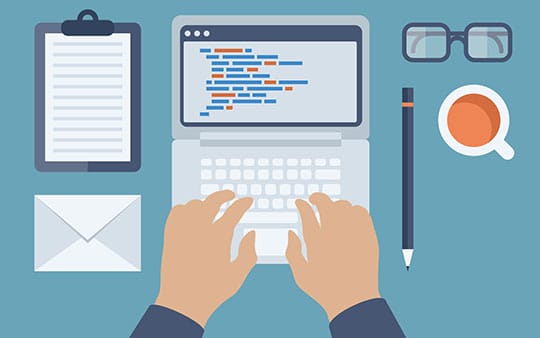
The writers working at my firm often ask multiple questions regarding content plagiarism. Even my clients are usually confused and worried if their website contents are rendered plagiarized by Google. Therefore, I have listed down some of the most popular queries regarding Plagiarism. Are you a newcomer in this market? Then go through the queries and their answers to steer clear of the facts regarding content plagiarism. Let’s begin.
1. Do I need to quote the source even if I change the words?
First things first, you must understand what Plagiarism is, actually. It is not only copying someone else’s work and using the same in your document. It is also stealing someone else’s ideas without mentioning the original source. Thus, no matter how you change the words, it will still be a plagiarized content if the meaning remains the same. You can change the words but not the original ideas, right? Therefore, it is important to mention the source even if you tend to change the words of your document.
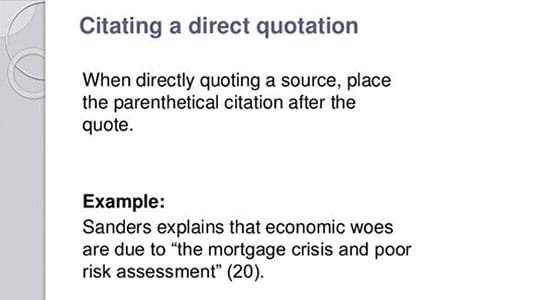
Image source: https://www.slideshare.net
Example:
Original: This quote was made by a famous historian, John Doe:
Almost all the Americans assumed that the war would end soon.
Using quotes:
According to John Doe, “Almost all the Americans assumed that the war would end soon.”
2. What if I want to copy something that has no author’s name in it?

You may come across a lot of stuff online that has no name of the author in it. You may read it, like the content and want to copy it. Some of you may even copy the entire thing without mentioning the source. In this case, too, you are not allowed to use the content on your own terms. Everything that is written online gets stored in the database of Google. Therefore, Google would know that the content had already been written by someone else and you are not the original author of the piece.
In such cases, you need to mention something like this:
The author of the content is yet unknown.
3. Is self-plagiarism even a thing?
Self-plagiarism occurs when you tend to use sentences that you have already used in your own work. Say you have written an article on ‘How to download Microsoft Office?’ and you will write about ‘How to download Microsoft Office 365?’ The steps required for both the topics are somewhat similar. You may have to use the same words or phrases and fall into the trap of self-plagiarism. In such situations, try to tweak the sentences to make the content original.
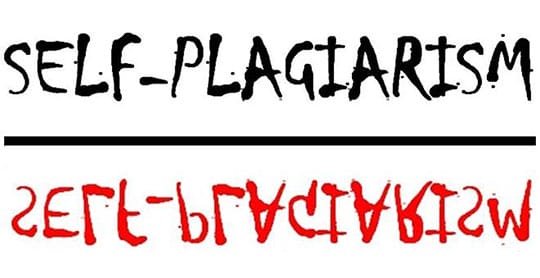
Image source: https://misfortuneofknowing.wordpress.com/
In my opinion, this is a case of dual-publication and not self-plagiarism. After all, the contents consist of your thoughts, your words, and your opinions. Thus, how come is it even plagiarized? However, make sure you execute the steps required to avoid dual-publication since that can also affect your Google rankings to a great extent. The best way to avoid dual-publication is to generate fresh topics for your content regularly.
4. Is paraphrasing considered a part of Content Plagiarism?
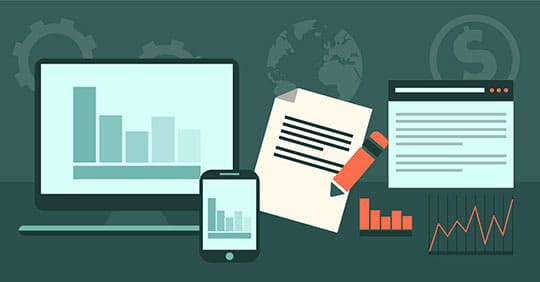
Paraphrasing is not actually a part of Plagiarism. It is, in fact, a method of avoiding Plagiarism in your contents. You have to mention the author’s names and attribute to the original source of the content. You must research well, consider multiple points of views and assess their credibility by contrasting, comparing and evaluating them.
Finally, you must acknowledge the sources of those ideas and provide due credit to each contributor in your content. This is how you paraphrase without plagiarizing content. Paraphrasing will be considered Plagiarism if you forget to cite the sources or paraphrase the section sloppily. No matter what happens, you are not supposed to use someone else’s words and pass it off as your own.
You may like: 20 Social Media Best Practices for Online Marketing in 2019-2020.
5. What are the best online plagiarism checkers for content writing?

Checking the content for Plagiarism is one of the most crucial steps before publishing it. The problem is there are over one billion websites available in the world. How will you supervise all the online contents and make sure yours is 100% original? What if you end up publishing a plagiarized content without even knowing about it? I have seen websites lose rank and credibility just because of plagiarized content. The top 10 plagiarism checkers of 2019 are as follows:
6. Does Grammarly Plagiarism Checker really work?

I have used Grammarly for a couple of times, and I am satisfied with the results. This tool searches billions of web pages against your content and returns almost accurate results instantly. It lets you change the lines that are supposedly plagiarized and recheck the document. The only con of Grammarly is that the plagiarism checking feature is not available on the free version. You have to buy the paid version in order to enjoy this feature.
You can opt for a slew of alternative plagiarism checkers instead. Apart from Grammarly, other plagiarism checkers also work really well, but all of them work in a different manner. Every plagiarism checker follows a strict algorithm which is generally based on the Google search algorithm. Thus, the more updated your software is, the better and more accurate results can return.
7. Is Plagiarism unethical?
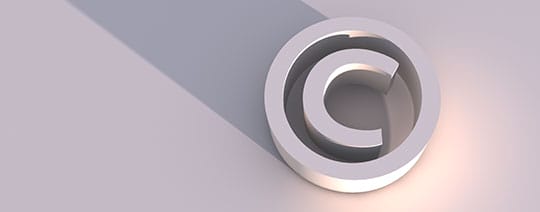
Would you call robbery an ethical job? Probably, no. Thus, Plagiarism, too, is considered unethical. Google loves original content and that is what Google counts on while indexing the web pages. When you plagiarize content, Google considers the content as a misinterpretation of yourself. Google algorithm assumes that you are lying and your content is not worth the first position of the search engine results.
The fact is that search engines scour the Web on a daily basis. If Google figures out two websites are publishing the same material, it impacts your search engine results negatively. At times, you may end up publishing duplicated texts unintentionally. But this could also lead to legal consequences. Thus, it is always better to get your content verified on a plagiarism checker tool and then upload it on the Internet.
8. What are the different types of Plagiarism?
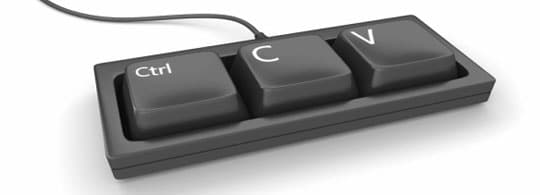
Here are different types of plagiarism that can affect the SEO of your website without even letting you know about it. The most common types of Plagiarism are explained as follows:
Direct Plagiarism
This happens when you copy word-for-word of someone else’s work without the use of quotation marks and attribution. Google considers this as a deliberate form of Plagiarism and may put your website in the blacklist forever.
Mosaic Plagiarism
Mosaic Plagiarism occurs when you tend to use phrases from someone else’s work without using quotation marks. It may also occur when you use synonyms for the original writer’s language and keep the general structure of the content intact.
Accidental Plagiarism
Never forget to cite your sources or misquote them as both the circumstances lead to accidental Plagiarism. Accidental Plagiarism is taken as seriously as other forms of Plagiarism by Google.
All the forms of Plagiarism are considered severe by the major search engines. There’s no shortcut when it comes to creating 100% original content. Research well, form your own arguments and check your content on online plagiarism checkers before publishing.
You may also like: 20 New SEO Friendly Methods for Link Building for 2019-2020.
Wrapping Up

Hopefully, your queries regarding Plagiarism are clarified by now. If not, then let me know about your query in the comment box. You should also prevent your original contents from getting plagiarized by scrapers. Perform internal linking on all of your articles and monitor the traffic generated from those links. Copycats usually do not put the effort of removing the hyperlinks. Thus, even if anybody tries to steal contents from your website, you can ensure that your website receives enough traffic through the internal links.
This article is written by Selina Jonson. Selina is a digital marketing manager turned web designer and developer for homework assistance site MyAssignmenthelp.com. She’s not just an expert who takes care of your do my homework requests but also an active blogger and a voracious reader. She is an avid traveler and explorer too!





